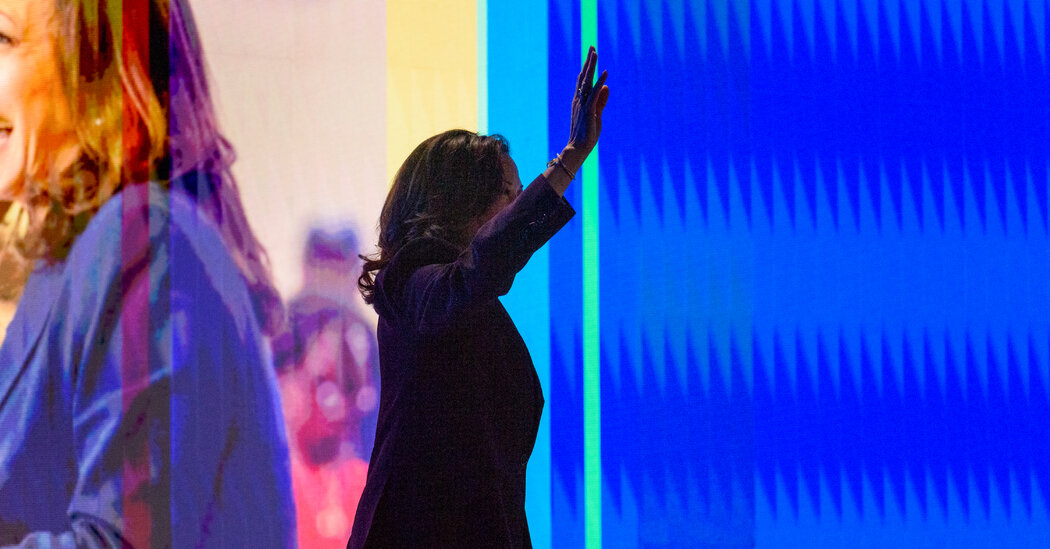
Supporters of Kamala Harris’s presidential campaign like to note that their candidate can “prosecute the case” against Donald Trump, a felon and recidivist Republican nominee. Speaking at rallies, the vice president has embraced the message, recalling that as a former courtroom prosecutor, district attorney and state attorney general, she took on all manner of predators, fraudsters and cheaters. “So, hear me when I say,” Harris tells the rapturous crowds of Insert State Here, “I know Donald Trump’s type!”
It’s a memorable line, and it has made Harris’s identity as a prosecutor — even more so than, say, as a female candidate or as the child of immigrants — integral to her presidential pitch. “That’s our choice,” a video at the Democratic National Convention this week intoned, with Beyoncé’s “Freedom” playing in the background. “A prosecutor or a felon.” But it’s also an identity with which Harris has long wrestled, not just in her presidential campaigns but in the two books she’s written on her life and career. Harris may know Trump’s type, but when it comes to her prosecutorial past, she seems less certain of her own type.
Harris’s books, a decade apart in publication, are worlds apart in their style and politics. “Smart on Crime: a Career Prosecutor’s Plan to Make Us Safer,” appearing in 2009 when Harris was serving a second term as San Francisco’s district attorney, is a wonk’s paradise, debunking myths about law enforcement and proposing a multiplicity of criminal-justice reforms. (Note the nifty triangulation: not tough or soft but smart on crime.) “The Truths We Hold: an American Journey,” which came out in 2019 when Harris was a first-term U.S. senator already eyeing the White House, is a more conventional memoir, spanning childhood, family and political campaigns, its policy ideas leavened with generic inspiration. (Reforms are needed “if not for ourselves,” she writes, then “for our children and grandchildren.” Also, it turns out “we are better than this.”)
Read together, the books show how Harris sanded off the rougher edges of her law-enforcement record for her first presidential campaign, offering a more negative and politicized vision of prosecutors’ influence in American life. Now, in her latest bid for the presidency, Harris is placing her prosecutorial background at the forefront of her message, once again reinterpreting her record, beliefs and ideas — or perhaps repackaging them — in the face of shifting public opinion.
In “Smart on Crime,” the future vice president highlights the noble origins and intentions of the nation’s criminal justice system and especially of the prosecutor’s purpose and symbolism. “Our founding fathers established a public office of prosecution to act on the notion that a crime against any one of us is a crime against all of us and worthy of our collective efforts to bring justice,” she writes. “The role for law enforcement speaks to a basic philosophy of American justice: We are all in this together.”
In “The Truths We Hold,” Harris’s view of law enforcement is less sanguine. “America has a deep and dark history of people using the power of the prosecutor as an instrument of injustice,” she writes. “I know this history well — of innocent men framed, of charges brought against people without sufficient evidence, of prosecutors hiding information that would exonerate defendants, of the disproportionate application of the law.” These were not the hard-earned lessons of personal experience on the job; Harris says this was her view before she had even finished law school.
This post was originally published on this site be sure to check out more of their content.






